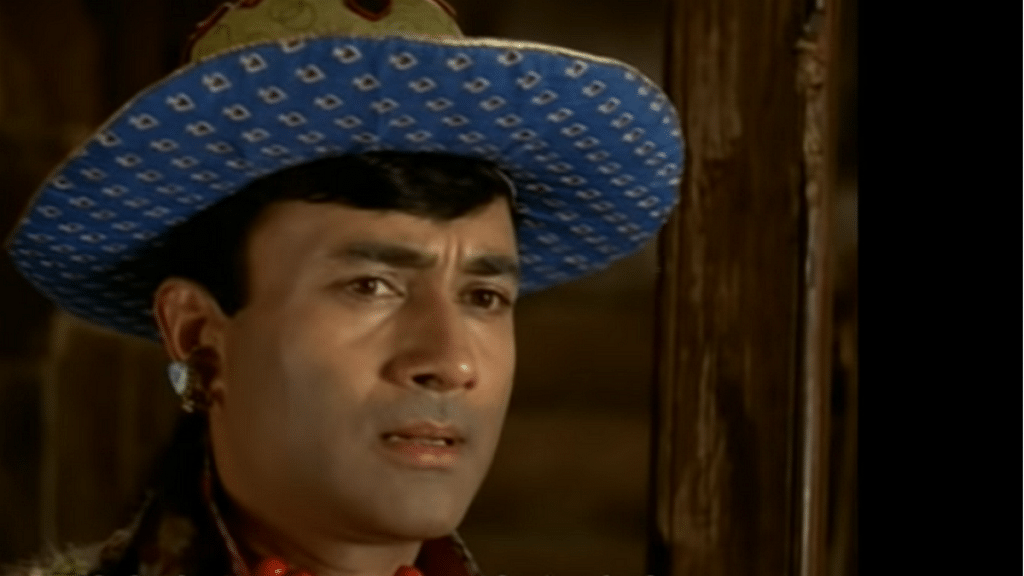New Delhi: A unique story, witty one-liners, excellent music and that signature swagger and head bob — Prem Pujari (1970), Dev Anand’s directorial debut, had him written all over it. Like every Bollywood superstar, Anand made a niche for himself as the tragic, romantic hero, with ample shades of grey.
While he will always be known first as an actor, he did direct and produce some of the most iconic films in Bollywood. On his 96th birth anniversary, ThePrint rewinds to Prem Pujari.
Starring himself, Waheeda Rehman and Zaheeda, Prem Pujari is a story set in the 60s, on the brink of the India-China War. Anand plays Ramdev, a pacifist soldier who is forced to flee upon being court-martialed. While on the run, he comes across Rani (Zaheeda), who happens to be a spy for China. Ramdev initially helps her out, not knowing her actual identity, but is inadvertently sucked into a dangerous game of espionage.
Rani likes Ramdev, but is also committed to her cause, and is torn between the two. When he realises what Rani and her fellow agents are planning to do, instead of running away like he usually does, he decides to beat them at their own game.
This film cleverly talks about patriotism and the Army — two of Bollywood’s favourite subjects. It is not an overtly pro-military and pro-country narrative (think the sacrificial and patriotic soldiers in Border), but sends its message subtly.
Anand’s Ramdev, who wouldn’t hurt a fly, is forced into the military by his father, a retired officer. The first hour of the film shows Ramdev debating the cons of war, the loss of life and unnecessary violence. But he always undercuts his argument by lamenting that his inability to engage in violence makes him less of a man. When he finally does spy for his country and eventually is drafted again to fight the 1965 war, he is much more of a ‘man’ and understands the need to appreciate the defence forces and war.
In a way, the film progressively takes you from being anti-war to pro-war by not only making you sympathise with the protagonist, but also villainising the other side.
https://www.youtube.com/watch?v=ZvoOwMEa6ZA
One of the ways in which the film villanises the other side — the Chinese — is by expanding on the worst, most racist stereotypes about them. The Chinese characters, who are all clearly Indian, talk in racist rubbish, with eyes plastered to the sides of their faces.
When Ramdev and Rani pretend to be Tibetan, everything from their costumes to their fake accents and makeup is simply grotesque and overdone. Now, understandably this was made during a time when political correctness and awareness, in general, were practically non-existent in Bollywood. So that argument can be made that it was done out of ignorance and need for pandering. But, these stereotypes did fuel the patriotic feeling.
https://www.youtube.com/watch?v=EPYXZUFs8cc
Anand is his usual indomitable self in the film. His direction, too, is snappy (sometimes a little too much in places). Direction was something he clearly had a knack for, as this film shows. Waheeda Rehman is as talented and beautiful as ever, but is still only used as a romantic interest. Zaheeda, on the other hand, has a much meatier role as the antagonist and performs the conflicting character well.
The music is another highlight of the film. Composed by S.D. Burman and written by Gopaldas Neeraj, the songs were (and still are) a bigger hit than the film, which actually flopped at the box office. Songs like Shokhiyon Mein Ghola Jaye, Rangeela Re Tere Rang Mein and Phoolon Ke Rang Se, sung by Kishore Kumar and Lata Mangeshkar are evergreen tunes.
Prem Pujari showcased Anand’s acting and directorial skills, it talked about something the whole country would get behind and it had great musical hits. For these reasons, it is probably one of the defining movies of his career.
